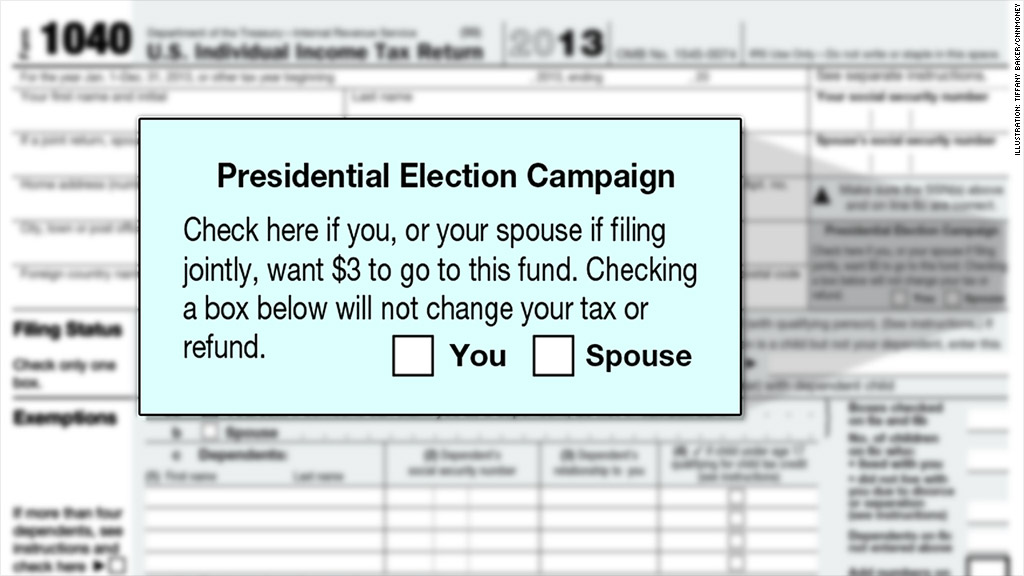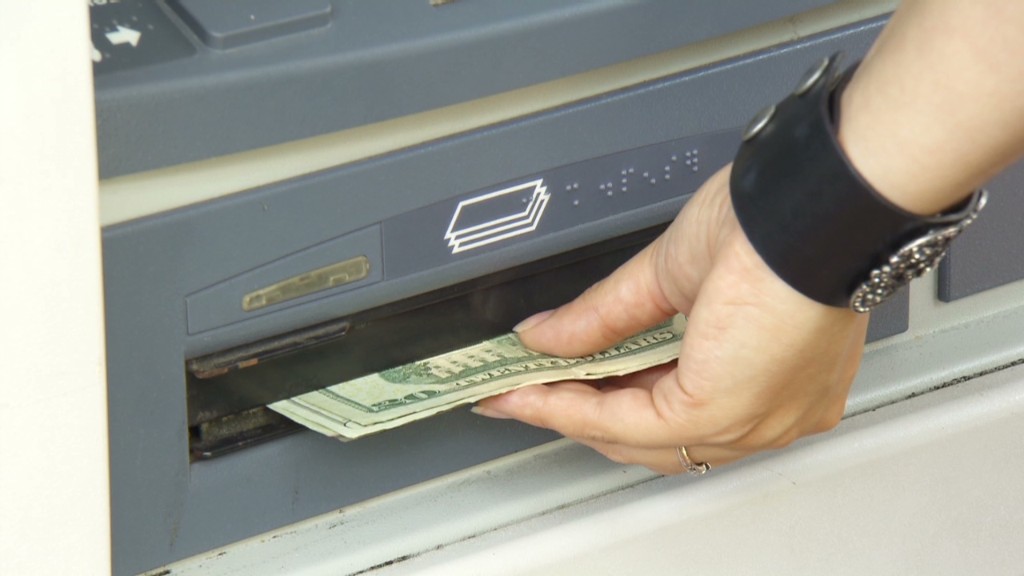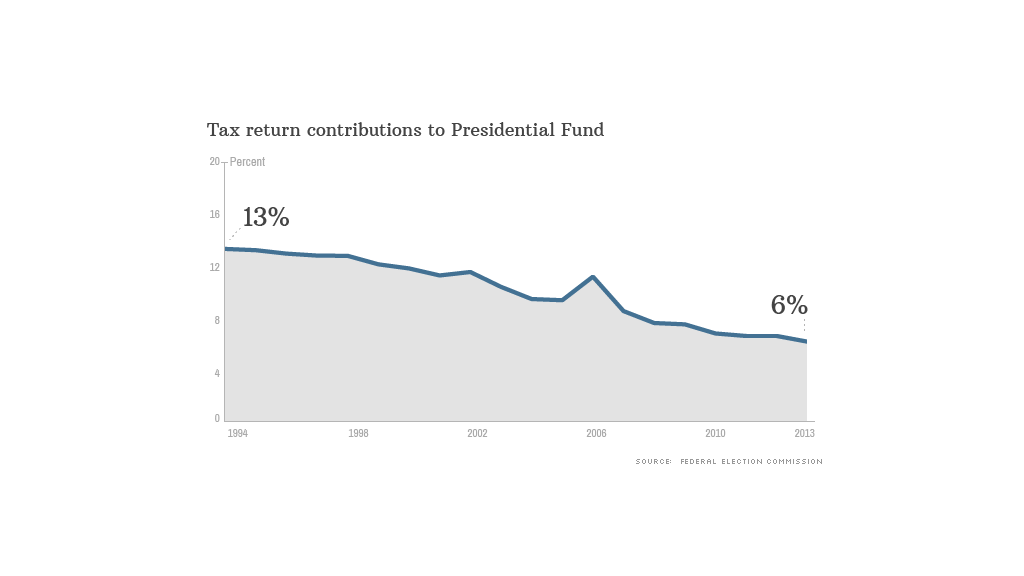
For decades, taxpayers have had the option of checking off a box on their tax returns to earmark money for the Presidential Election Campaign Fund.
The amount you can allocate for the fund started out at $1 and was hiked to $3 in 1994. And while the option was quite popular at the start, the number of people designating money for the fund has been dropping ever since.
In 1977, nearly 29% of taxpayers had opted to contribute to the fund. By 1992, that percentage dropped to 19%. And in 2013, a mere 6% of taxpayers had checked off the box designating $3 toward presidential campaign funding.
As a result, funding received via the checkoff box has dropped from a peak of $71 million in 1994 to $39 million in 2012, the most recent year for which the annual total is available.
Related: 10 tax audit red flags
Why the decline? A number of factors are likely at play, says Roberton Williams, a fellow at the Tax Policy Center.
For one, there's a common misconception that this money is coming out of the taxpayer's own pocket, so people struggling financially are much less likely to give more money to the government than they have to. But really, the box simply provides taxpayers with a choice to steer $3 of overall tax revenue collected by the IRS for this specific fund -- it doesn't add to someone's tax liability or reduce their refund.
"There's always been the fear, 'is this going to raise my taxes?' Even though the box explicitly says it won't," said Williams.
Related: 13 crazy tax deductions
Another possible reason for dwindling contributions: growing frustration with Washington politics. "People are sick of politics and saying, 'Why should I throw $3 in the pot?," said Williams.


The obscurity of the checkoff box is also likely a factor, with many people not even realizing it exists -- especially people whose tax preparers fail to ask them about it.
Plus, the most recent presidential candidates -- Barack Obama and Mitt Romney -- refused to draw on money from public funding during their campaigns anyway.
Related: 7 surprising 2014 tax facts
Making matters more confusing: Last week, Obama signed a bill eliminating taxpayer funding for presidential nominating conventions altogether, which is one of three places that money from the Presidential Election Campaign Fund is allocated.
Instead, money that had been previously set aside for these conventions will now be used for pediatric medical research at the National Institutes of Health.
The checkoff box on tax returns isn't going away, however. Taxpayers can still elect to contribute $3 to the overall Presidential Election Campaign Fund.
While that money will no longer be used specifically for nominating conventions, it will be used to match funds for presidential primary candidates during their campaigns and to provide grants for general election nominees, according to the Federal Election Commission.
